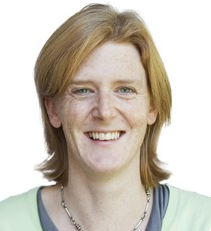The first step in eradicating TB is eliminating the funding gaps
 There has been a recent flurry of reports on tuberculosis (TB) ahead of this week’s Global Ministerial Conference on Ending TB in the Sustainable Development Era in Moscow. For the second year in a row, the World Health Organization’s Global TB report showed that TB remains the leading infectious disease killer. While the Stop TB Partnership progress report on the Global Plan to End TB 2016–2020 shows that the paradigm shift required to reach the WHO END TB strategy and the Sustainable Development Goal TB targets for 2030 is still not occurring.
There has been a recent flurry of reports on tuberculosis (TB) ahead of this week’s Global Ministerial Conference on Ending TB in the Sustainable Development Era in Moscow. For the second year in a row, the World Health Organization’s Global TB report showed that TB remains the leading infectious disease killer. While the Stop TB Partnership progress report on the Global Plan to End TB 2016–2020 shows that the paradigm shift required to reach the WHO END TB strategy and the Sustainable Development Goal TB targets for 2030 is still not occurring.
When these targets were made in 2015, they required the tools we had then to be implemented and scaled up. Yet they were also dependent on the necessary investment in research and development (R&D) taking place, so that we’d have the new tools we need to change the narrative in TB from “control” to a more ambitious “ending” or eradication. This investment, like the paradigm shift in the TB approach, has not happened. The Treatment Action Group’s latest R&D funding report shows that despite a small increase in the total TB R&D investment, it still remains only a third of the $2 billion a year required. The small print shows that the investment of private and pharmaceutical companies in TB R&D was at its lowest level since 2009.
Should we surprised by this?
The market’s failure to develop new antibiotics has been highlighted, and TB antibiotics are no different. In fact, since we don’t need a new drug to cure TB—rather, we need new combinations of new drugs—the challenges, barriers, and costs for developing new TB treatments are higher, making it an unattractive proposition for the private sector. This need for new combinations to treat TB means that there needs to be a bespoke solution for TB, which will overcome the market’s failure.
The Life Prize (formerly the 3P Project) is a response to the unique challenges in TB R&D and aims to create a new way of rewarding investment in TB drug development. It will create an open, collaborative research framework to promote the development of new regimens, with stewardship, quality, accessibility, and affordability key concerns that will be considered throughout the development pipeline. The Life Prize is an enabling framework that is open to all actors—from private and pharmaceutical companies to academic and research groups. It promotes the collaboration and partnerships we need to develop the treatments of the future and ensure their availability to all.
Innovative ideas like the Life Prize, the BRICS TB Research Network, and the India TB Research Consortium are looking at the problem of TB in a new way, and building collaborative networks and partnerships to develop the new tools of the future.
The focus on R&D at this week’s Ministerial Conference in Moscow builds on recent declarations at the G20 and BRICS summits, which highlighted the importance of R&D for developing new tools. And the declaration from Moscow is an important next step on a long road to the elimination of TB.
It is vital that discussions move beyond framing the problem to implementing the solutions. The collaboration and innovative ideas taking place in the field of TB must be matched by the political and financial commitment of countries and donors. It is not acceptable that a curable infectious disease is killing 1.3 million people every year. It is not acceptable that TB can be allowed to cause a quarter of all antimicrobial resistance related deaths in 2050, as is projected. And it is not acceptable that the current R&D investment continues to stay at a third of what is required.
Elimination is the aim for TB. Countries at next year’s UN High Level Meeting on TB have an opportunity to build on the progress made in Moscow and commit to the first step of eliminating TB: eliminating the funding gaps for TB.
Grania Brigden is the Life Prize project lead with The International Union Against TB and Lung Disease (The Union). Previously she was the TB and AMR adviser for the MSF Access Campaign. Grania studied medicine at the University of Aberdeen, Scotland, and she continues to work in an ad hoc basis for the NHS as an honorary consultant at the Royal Free Hospital, London. She is based in Geneva, Switzerland. She is committed to improving TB treatments and ensuring access to quality treatment.
Competing interests: None declared.
